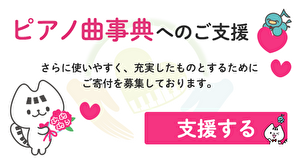
解説:仲辻 真帆 (784文字)
更新日:2018年4月24日
解説:仲辻 真帆 (784文字)
山本直純は、20世紀後半に活躍した作曲家兼指揮者である。祖父は著名な実業家、祖母は 作家・有島武郎の妹、母はピアニスト、そして父は作曲家で指揮者の山本直忠。また、妻と長男も作曲家、次男も作曲家でチェロ奏者という音楽一家である。
1932(昭和7)年12月16日に東京で生まれた山本直純は、両親より音楽の手ほどきを受けた。自由学園で音楽教育を受け、ヴァイオリンを鷲見(すみ)三郎に師事。指揮法は齋藤秀雄から学んでおり、同門の友人に岩城宏之、後輩に小澤征爾がいる。大学入学前より渡辺浦人のもとで作曲の仕事を手伝い始める。1952年、東京藝術大学音楽学部作曲科に入学するが、3年次に同大学指揮科へ転じて渡邉暁雄のもとで学んだ。 1967年、NHKのテレビ番組『音楽の花ひらく』に出演し、紅いタキシードで指揮する姿が評判を呼んだことから、 「大きいことはいいことだ」のキャッチコピーで知られるコマーシャルにも出演した。1972年には小澤征爾と新日本フィルハーモニー交響楽団を設立。同年よりTBSのテレビ番組『オーケストラがやって来た』の企画・音楽監督を担当し、クラシック音楽の裾野拡大に貢献した。1983年には大阪城ホールのこけら落としで「1万人の第九コンサート」を企画し、1998年まで指揮および音楽監督を続けた。第44回日本レコード大賞特別功労賞を受賞。
作品には、札幌オリンピックの入場行進曲や国連委嘱曲の他、《一年生になったら》、《歌えバンバン》、《こぶたぬきつねこ》などがある。 大河ドラマ『風と雲と虹と』、『武田信玄』や、 バラエティ番組『8時だヨ!全員集合』といったテレビ放送音楽も多数作曲。映画音楽では、特に山田洋次が監督を務めた『男はつらいよ』 の主題歌が人気を博した。2002年6月18日にこの世を去った後も、山本直純が作曲した作品は広く愛聴され続けている。
About composer : 仲辻 真帆
(2873 文字)
更新日:2018年4月24日
[開く]
About composer : 仲辻 真帆 (2873 文字)
Naozumi Yamamoto was active as a composer and a conductor in the latter part of the 20th century. His grandfather was a famous businessman, his grandmother was a sister of the famous Japanese writer, Takeo Arishima, his mother was a pianist, and his father, Naotada, was a composer and conductor. Naozumi’s wife and his elder son are moreover composers as well, and his second son is both a composer and a cellist. In other words, Yamamoto’s family is a highly musical family.
Yamamoto who was born in Tokyo on December 16 in 1932, and he learned the basics of music from his parents. He received music education in Jiyū Gakuen and studied the violin under Saburō Sumi. His teacher of conducting was Hideo Saitō and a fellow pupil and friend was Hiroyuki Iwaki. One of the younger pupils was Seiji Ozawa.
Before studying at the university, Yamamoto began to assist with compositional work under Urato Watanabe. Yamamoto entered the Department of Composition at Tokyo University of the Arts in 1952, but he transferred to the Department of Conducting during his third year and studied with Akio Watanabe.
In 1967, Yamamoto appeared on the NHK television program “Ongaku no hana hiraku (Opening the Flowers of Music)”. Yamamoto became renowned for his conducting while wearing a red tuxedo, and he subsequently appeared in a commercial which was famous for the catchphrase ‘Ōkii-koto ha yoikoto-da (A big thing is a good thing)’. in 1972, Yamamoto established a new Japanese philharmonic orchestra with Seiji Ozawa. From the same year, Yamamoto was in charge of the planning and musical direction of the TBS television program “Orchestra ga yattekita (The orchestra has come)”, and he contributed to the expansion of the range of classical music. He planned ‘Ichi-man nin no daiku concerto (Beethoven’s Symphony No. 9 Concert by 10.000 people)’ for the opening of the Osaka-jō Hall (Osaka Castle Hall) and continued conducting as well as his work as musical director until 1998. He was awarded the Distinguished Service Prize of the 44th Japanese Record Award.
His compositions include the entrance processional march for the Sapporo Olympic and a piece commissioned by the United Nations as well as “Ichinen-sei ni nattara (When I become the first year of elementary school)”, “Utae banban (Sing and Sing)”, and “Kobutanukitsuneko (Piglet, Racoon Dog, Fox and Cat)”. Yamamoto furthermore composed many pieces for television, such as for the historical TV drama series “Kaze to Kumo to Niji to (Wind, Clouds, and Rainbow)” and “Takeda Shingen”, and the variety program “Hachi-ji dayo Zenin Shūgō (It’s eight o’clock, gather all members)”. In film music, Yamamoto composed the title song to the film “Otoko ha tsurai yo (Life is hard on a Man)” directed by Yōji Yamada which became very popular. After his death on June 18 in 2002, the works of Yamamoto continue to be loved.

